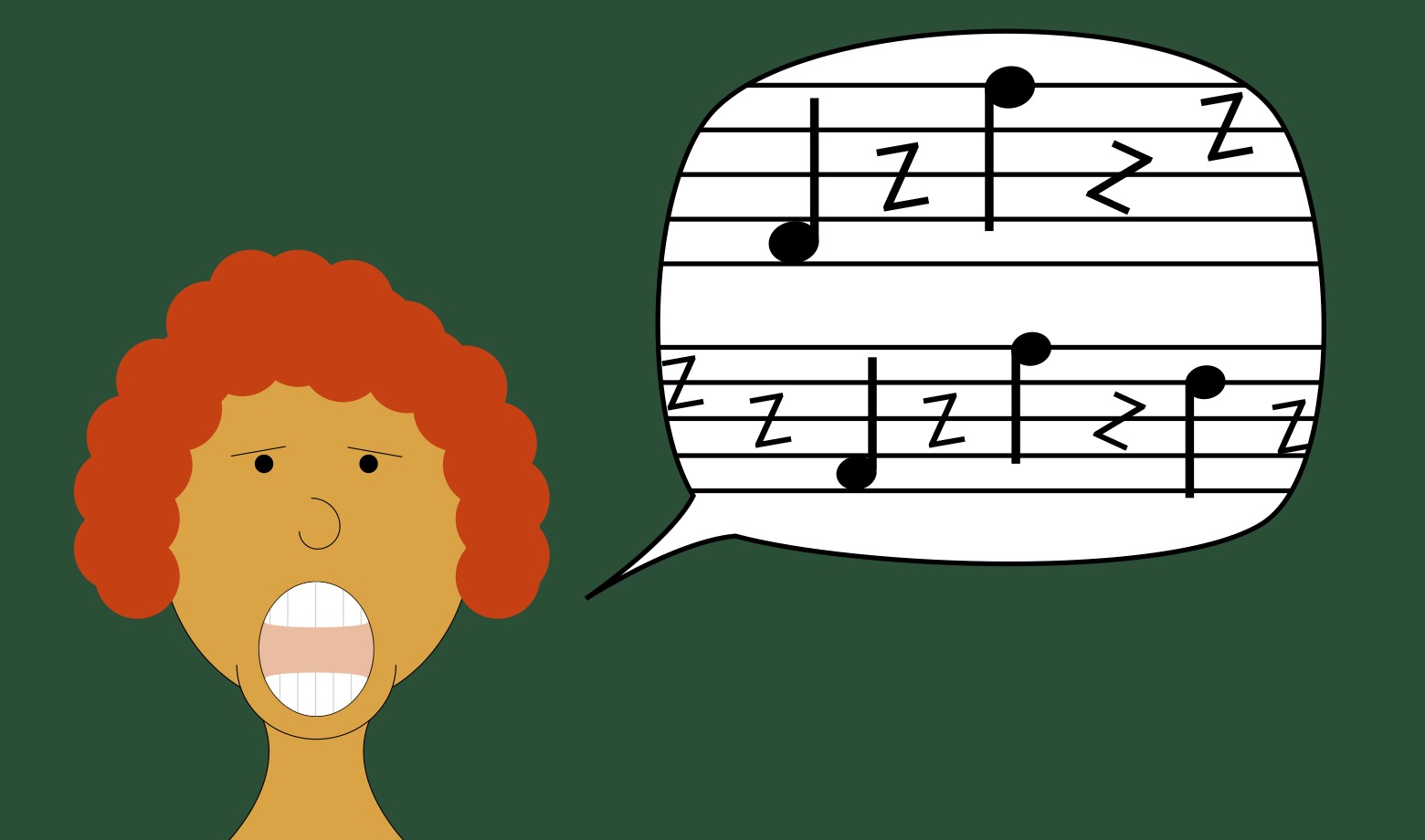
Signs That You Might Be Vocally Fatigued
Posted Saturday, May 9th 2015 by Zac Bradford
The voice is the only instrument that is apart the human body (unless you count clapping your hands as percussion!!). So it makes sense that the instrument is the entire body, not just the larynx alone. Everything from body alignment, respiratory system, the larynx, vocal tract, not to mention the brain are involved in this high level athletic coordination!
The voice is the only instrument that is apart the human body (unless you count clapping your hands as percussion!!). So it makes sense that the instrument is the entire body, not just the larynx alone. Everything from body alignment, respiratory system, the larynx, vocal tract, not to mention the brain are involved in this high level athletic coordination!
So how do we know if the voice is fatigued? Or better yet, what can we do and what signs can you look for to prevent vocal fatigue? Below is a list of possible signs you are vocally fatigued and some suggestions for prevention.
General Signs of Vocal Fatigue
Frequent licking of lips: Licking lips can be a sign of de-hydration which is linked with dryness at the vocal fold level. So if you find that you are constantly licking your lips, make sure that you are drinking 6-8 glasses of water a day and monitor the things that may cause dehydration (alcohol, coffee etc).
Attempts to relieve bodily tension: Tension in the face, neck and shoulders occurs because the mechanism is wearing out (extrinsic laryngeal muscles). Try doing stretches a few times a day. This could include head, neck and full body stretches to relieve unwanted tensions.
Perspiration: The body sweats because of effort in tension. Voice use associated with physical activity (during or after exercise) has been proven to require additional laryngeal effort and closure forces. Which means that you might be more likely to push (too much compression) after running, dancing or going to the gym. Take time to catch your breath and relax before practicing, otherwise you may feel your voice getting tired more quickly.
Compromise in Posture: It is common for people to under breathe in day to day life. When people have a small amount of air in their lungs (due to shallow breathing), then there can be a tendency to crunch over as a result of over driving/constricting from the abdomen to push the little amount of air that is available. Take time to breathe deeply and be aware of contraction and release of your abdominal muscles (you can monitor this by placing your hands on your stomach and feeling the movement as you inhale and exhale).
Excessive Throat Clearing or Hoarseness: This can occur as a result of overuse or misuse of the voice, or in an attempt to clear mucus. Swallowing helps reset and clear the voice (remove mucus) and stretch the muscles that house the larynx. Another option for ridding the voice of unwanted mucus is to wheeze as you exhale and then quickly swallow. This can blow any lingering mucus from your throat to your mouth and then with a quick swallow be cleared from your vocal tract. Try to avoid coughing as it can become habitual, especially after recovering from sickness. Coughing gets your vocal folds to aggressively come together in a way that can cause more fatigue and possible hoarseness.
Other signs specific to singing
- Lack of ability to sustain long phrases. This could occur due to the inability to keep the ribs or the abdominal muscles expanded/released for part of the sung phrase (on exhalation). It is common for the ribs to collapse, or abs to squeeze when the body is tired or fatigued. Subtle control and coordination will often decrease with fatigue and be replaced by heavy movement.
- Loss of Tone Focus. If you feel yourself not using resonance as efficiently as you usually do, it could be due to unnecessary tension in the throat. Unwanted tension in the face, neck and other parts of the body can minimize the efficacy of your vocal resonators.
- Irregularity of Vibrato. This is a major indicator of vocal fatigue, especially with singers who have prior experience singing with regular vibrato. It could either be a slow warble or a fast bleating vibrato, either way it is the result of a coordination imbalance.
- Loss of High Notes, Low Notes and Soft Notes. These are signs that heightened and nuanced coordination of muscle & air flow are not as efficient as they usually are, or they could be.
There are other clues that you may notice while singing that could be signs of vocal fatigue. However, these could also be due to lack of coordination, or because a singer hasn’t developed these skills yet.
What Next…..
If one or more of these signs is occurring, then you may be fatigued vocally or increasing your chances of wearing out your voice. Again, experiencing any of these signs could be due to lack of vocal coordination and experience.
The first step to prevention of voice injury is awareness of misuse, overuse or physical behavior that compromises vocal efficiency (directly or indirectly). It is helpful to consult a professional for an assessment and for strategies for better voice use and care. Depending on the severity, frequency and specific symptoms or challenges, you may need to see a Voice Teacher, Speech Coach, ENT (ear nose and throat specialist), Speech Language Pathologist or Vocologist.
With heightened awareness, tools for prevention and the guidance from a professional, you can start on a journey towards vocal longevity, sustainability and freedom. Which is a much better option than putting yourself at risk of getting hoarse, limiting vocal freedom or worse yet, vocal injury.
References:
Titze, Ingo R., and Abbott, Katherine Verdolini. VOCOLOGY – The Science and Practice of Voice Habituation. Salt Lake City: National Center for Voice and Speech, 2012.

Zac Bradford
Director of NYVC Australia/Voice Teacher Associate
Zac Bradford is the Director of NYVC Australia. His clients have reached the Top 10 on the Billboard charts, have been featured in Hollywood films, TV shows, have worked as backing singers for AAA touring artists, and are performing on Broadway, Off-Broadway, 1st US Tours, internationally, and more. His clients also perform in famous live music venues including Carnegie Hall, Lincoln Center, The Blue Note, Rockwood Music Hall and The Bitter End.

Music for All: An Ode to Building and Servicing Our Community
In this article, Andy King discusses the impact community service through music has made on him and explores ways we can help build and service our communities.

I Want To Sing And Perform! Where Do I Start?
In this article, Andy King offers a range of performance ideas for singers of all levels and highlights the importance of knowing your “why” and "how" to find fulfilling musical opportunities.

Practicing Singing in New York City: A Practical Guide
In this article, Bryan offers practical solutions to students struggling to find a private and safe space to practice singing in New York City.